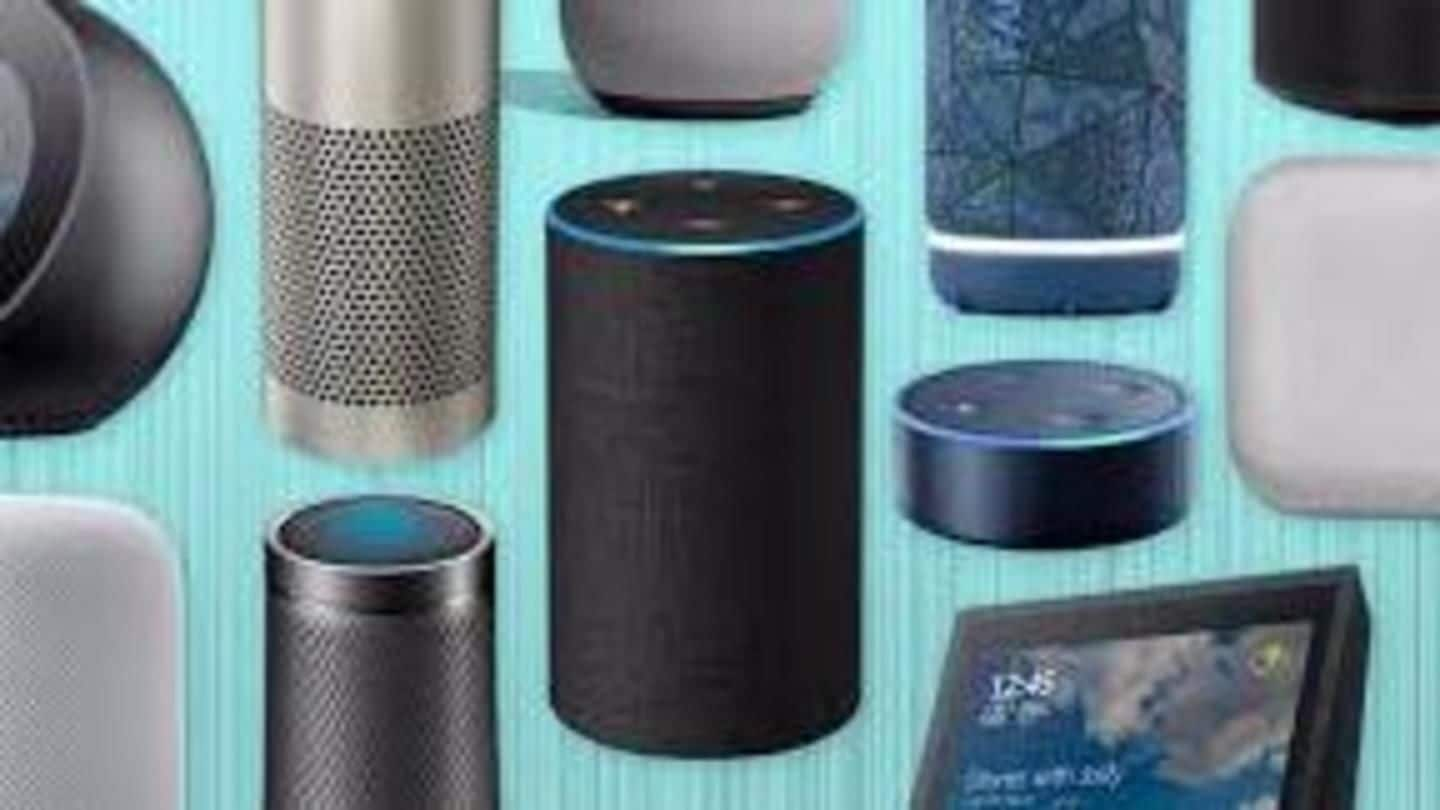
Privacy is a myth. Under fire this time: Smart speakers
What's the story
Google recently launched its smart speaker Google Home in India. Amazon's Echo smart speaker is already available in the home market since last year. Powered by Google Assistant and Alexa respectively, they can set up reminders, play music, and control smart home appliances on voice commands. But there is something else these devices can do that we had no idea about: spying.
Disclaimer
Problematic patents
According to a study, Amazon and Google's patent filings for their digital home assistants raise major privacy concerns. The technologies that the two companies are aiming at imbibing would dramatically increase surveillance of consumers' private lives for financial gains. Notably, patents don't compulsorily see the light of the day, but they do reflect a company's ambitions.
How
Smart speakers are listening ALL THE TIME
The smart speakers can listen to you in "passive state." Even when you haven't uttered the wakeword (Alexa, OK Google), they are listening in on your conversations for statements like "I love skating." This is done to develop acoustic "voice profiles" of users. They look for trigger words (love, like, hate, buy) to gauge your interests, and can send that data (in text format) to the companies' servers.
What
They know which movie you love, when you sleep
Through this the devices can effectively spy on your health, likes/dislikes, personal information, daily habits, shopping lists, and sleeping, cooking, entertainment, and showering schedules. In a particularly troubling patent, Google can use a smart home security camera connected to Google Home to determine users' "gender, age, fashion-taste, style, mood, known languages, and preferred activities."
Why?
This helps companies make money
It foremost helps in target advertising where you can be presented with suggestions based on the book you're reading, marketed sports camp based on the presence of a basketball in your room, and recommended a TV program based on the face of a famous actor on your t-shirt. Companies might also insert paid content and share this data with third-party businesses.
Information
What is intelligent advertising?
Explaining intelligent advertising with an example, one patent stated, "A user with a young child whose birthday is coming up in the next few days could be presented with a highly-tailored intelligent message directing him to a local bakery which sells birthday cakes."
Keeps Getting Worse
How far can data spying go?
If you are making a phone call through a digital home assistant, they can process both sides of the conversation and as mentioned before, store keywords. In another extreme patent, the devices can monitor a user's night-time breathing patterns to detect a sleep disorder. Further, if your heart rate indicates that you are under stress, you can be presented with a customized vacation package.
You Agreed To It
Ultimate goal: One home assistant device in every room
And so far, all of this is technically consented for. At the time of setting up Amazon Echo, users agree to collection of acoustic voice signatures, voice queries, music played, and to-do and shopping lists. In the case of Google Home, users agree to let the device makes inferences based browsing histories, email content, and location data. All in the name of better service.
Negative Implications
No good can come out of this
While the companies claim they collect this amount of data primarily for commercial purposes of their own, there is always a chance of this huge personal repository getting into the wrong hands. Malicious actors can hack Wi-Fi enabled "smart" toys and talk to children. Law enforcement has already accessed user data through their smart devices for criminal investigations.
Information
Your data can literally be accessed by anyone
Google Home's FAQ contains this disclaimer: "Anyone near your Google Home device can request information from it, and if you have given Google Home access to your calendars, Gmail or other personal information, people can ask your Google Home device about that information."